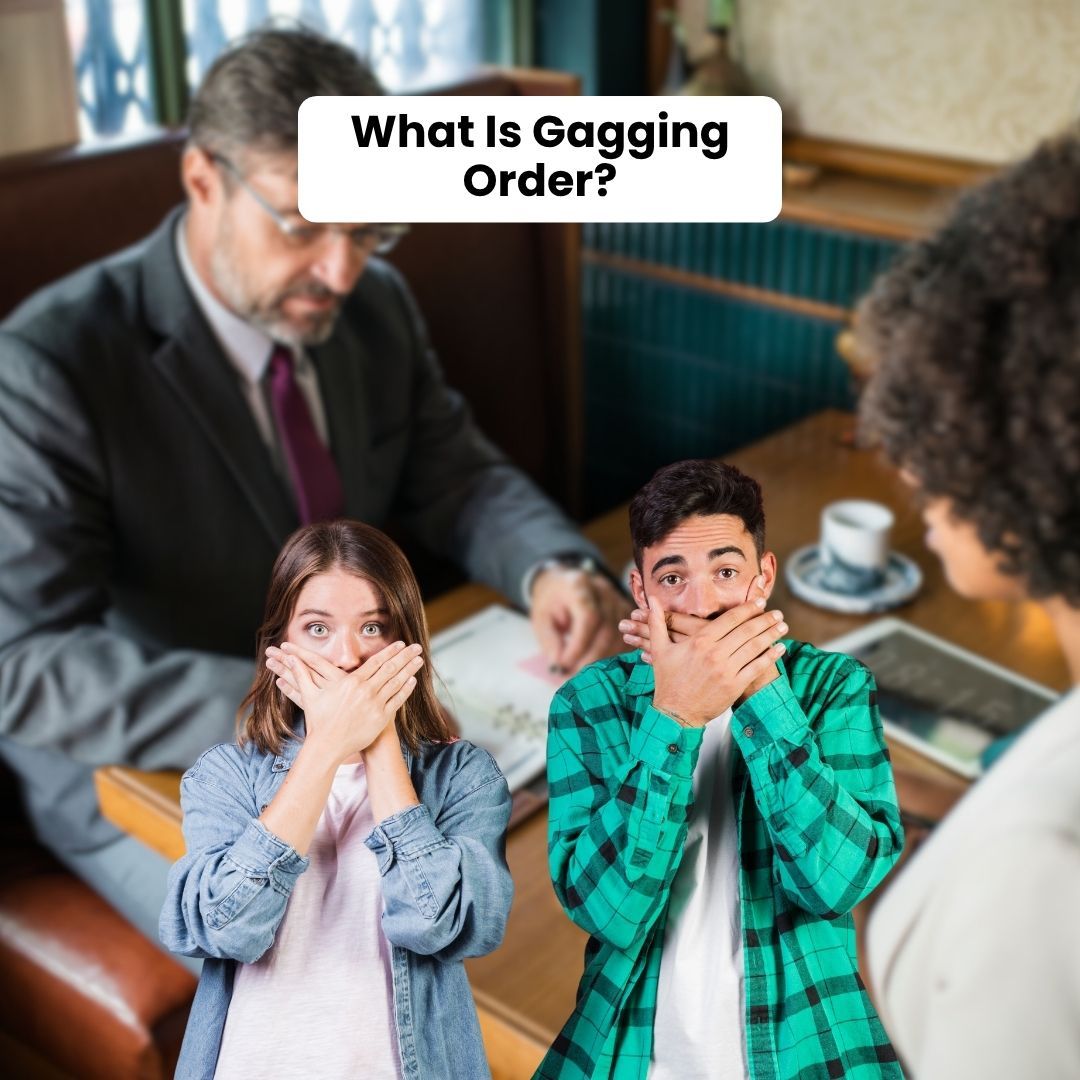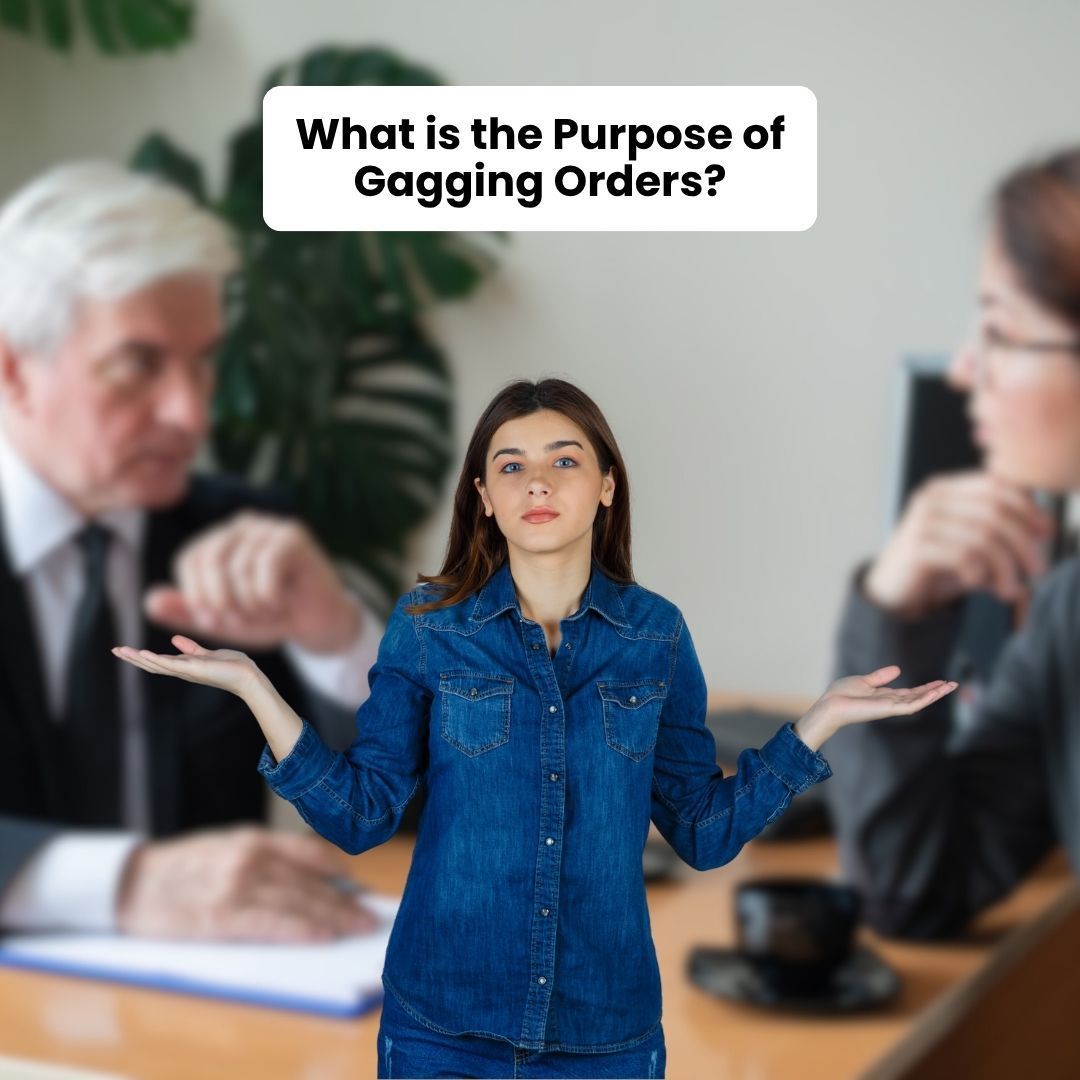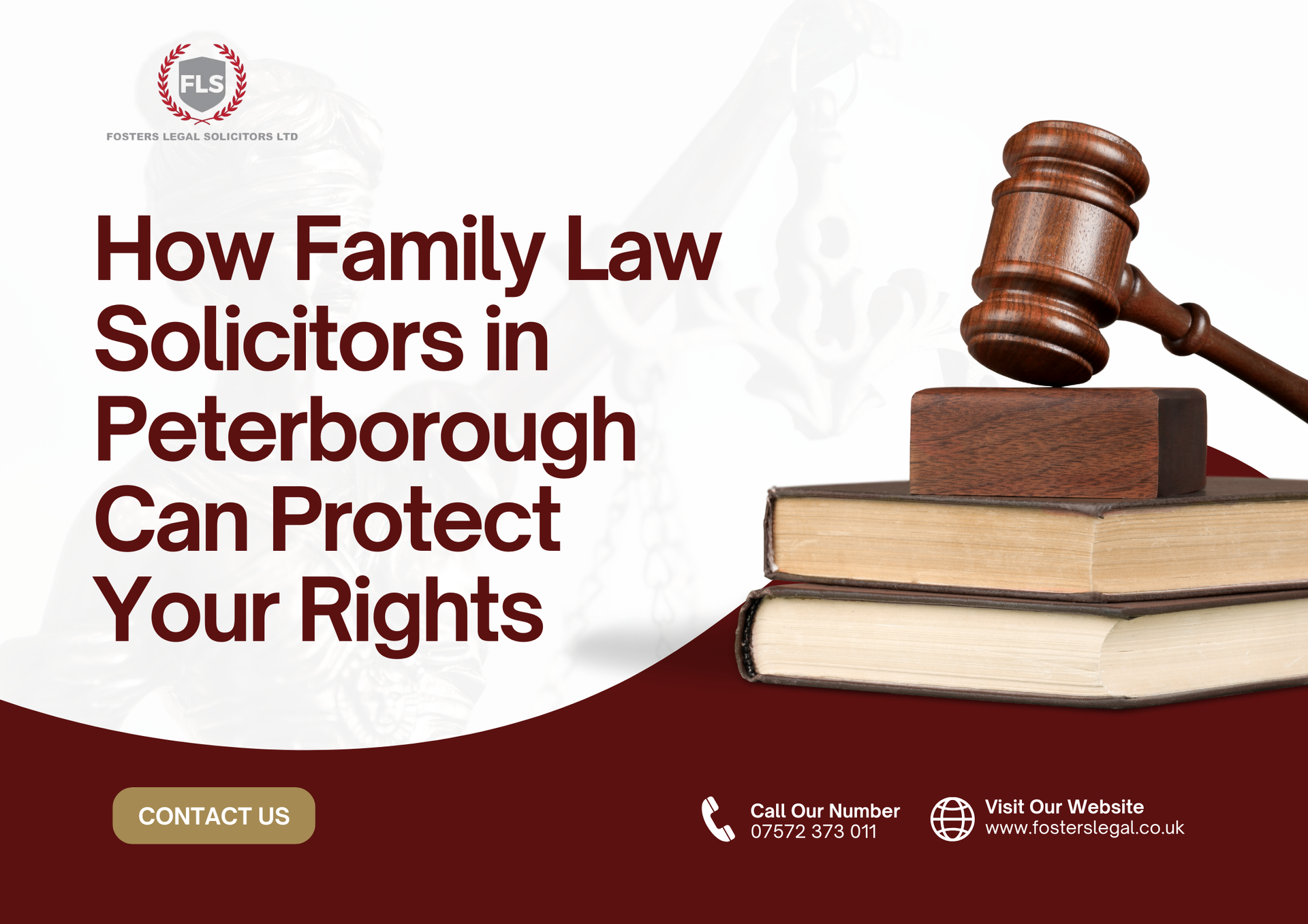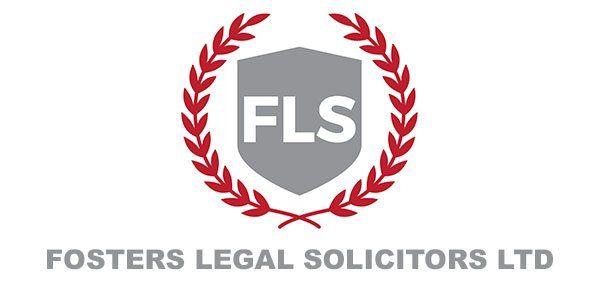What Is a Gagging Order, and How Does It Protect Sensitive Information?
What Is a Gagging Order, and How Does It Protect Sensitive Information?

A lot of individuals hear the term in the news and feel a bit baffled about the matter of the gagging order and how it actually works in the UK. The confusion is understandable, particularly when you're contemplating a legal case, negotiating a workplace dispute, or in a sensitive situation where privacy is of significant importance. The term 'gagging order' conjures distressing connotations, and as one of the most recognised
solicitors, we've met many clients across Stevenage, Peterborough, and Watford who have devoted considerable time worrying over what they can or cannot say. As professionals regularly dealing with such orders, we want to take you through them in a straightforward and clear manner so you will understand the reasons for the gag rankings and the implications for real case scenarios and what you should look out for. When you're done reading, you'll be more at ease and better prepared to understand anything that has to do with NDAs, privacy, or the law's limits on speech.
What Is Gagging Order?

It can be helpful to look for straightforward terms when seeking to understand what a gagging order is. A gagging order is a court order or a contractual clause that prevents an individual from disclosing certain information. It is typically used to protect private information, ongoing proceedings, business issues, or sensitive disagreements.
How a Gagging Order Works in the UK
In the UK, a gagging order can result from two different sources:
- A court injunction prevents publication by the public or the media of any information that might interfere with a proceeding or an investigation or risk the safety of individuals.
- A private agreement or clause appears in settlement agreements, employment contracts, and NDAs prohibiting an individual from discussing certain events, terms, or documents.
Where You Will Find Gagging Orders
You will see gagging orders issued in many day-to-day situations, including:
- in a criminal case
- a civil dispute
- employment circumstances
- business disputes
- high-profile disputes
A Real Experience from Practice
We once worked with a family that was engaged in a workplace dispute, and the employee was hesitant to engage in any discussion of the past, now that they were bound by a settlement agreement. They thought that every sentence would breach the gagging order. After reviewing the document,
Sandra Foster was able to assist them in identifying key points for public discussion and points that remained off limits to the public discussion. That clarity had an impact on their mental well-being. This experience reminded me that people often misassess orders with official-sounding names, so they may think they do not understand them.
Now that the meaning is clear, let’s look at why these orders exist and what their purpose is in everyday legal matters
What is the Purpose of Gagging Orders?

Gagging orders answer practical problems. We explain each goal below so you know what a gag order is and why the court or parties use one.
1. Ensuring a Fair and Impartial Trial
Publicity can sway jurors or pressure witnesses. A gagging order stops pre-trial headlines or social media commentary that might bias the outcome. Tip: If you’re involved, avoid commenting publicly until counsel clears you.
2. Protecting Investigations and Court Processes
Early disclosure can tip off suspects or destroy evidence. Courts use injunctions to keep enquiries effective and orderly. Tip: Preserve documents and let investigators handle outreach.
3. Preventing Witness Intimidation
A banning order reduces the likelihood of harassing witnesses or victims when they face threats. I once helped a client with a work case where rumours about a witness could cause them to drop out. The order kept everyone safe and the case on track. Tip: If you feel threatened, you should tell your
Fosters Legal Solicitors right away.
4. Keeping Sensitive Information Confidential
Gagging orders protect personal, medical, and financial details from public exposure. This matters in family disputes and settlements where privacy prevents real harm.
Gagging orders are common in cases involving separation, childcare disagreements, or disputes within the household, which is why guidance from a
family law solicitor becomes useful.
5. Protecting Sensitive Business Interests
Companies use gagging orders to stop leaks of trade secrets or boardroom disputes that could harm value. Courts balance this against freedom of expression. It is advisable to ensure narrow, precise wording when drafting clauses.
6. Supporting Private Dispute Resolution
Confidentiality often helps people resolve sensitive issues without turning them into a public dispute. A well-structured gagging order supports smoother settlements and keeps discussions focused on solutions rather than conflict. When a
will writing solicitor is involved, confidentiality becomes even more important because families want private arrangements to stay protected and free from unnecessary tension.
7. Preventing Future Claims
After settlement, a gagging order can stop past facts from being reused to start new claims or smear campaigns. It preserves the finality parties expect from an agreement. Tip: check how long restrictions last and whether any exceptions apply.
8. Safeguarding National Security
Some information risks public safety or intelligence operations; gagging orders can lawfully restrict publication to protect the public. If you raise concerns about national security, anticipate specialised counsel and more stringent court oversight.
Knowing
what a gag order is and the reasons behind it helps you react sensibly, not emotionally. Next, we’ll look at how Fosters Legal can help you draft, challenge, or comply with gagging orders in Stevenage, Peterborough, and Watford
How Fosters Legal Solicitors Can Help You Navigate Gagging Orders

Our employment law solicitors make gagging orders related to business simple and practical, so you know exactly what you can say, what you can’t, and how to protect yourself or your business in Stevenage, Peterborough, and Watford.
1. Drafting and Negotiating
We write tight, clear clauses that do the job without overreaching. Precise wording stops future disputes and keeps the gagging order focused on what truly needs protection.
- It is advisable to request defined terms and time limits.
- Example: we rewrote an employer’s clause to remove an overbroad restriction that could have blocked legitimate references.
2. Advising on Risk, Enforceability, and Legal Exposure
We evaluate the likelihood of enforcing a gagging order or NDA and provide a clear explanation of the actual risks. It prevents people from giving away more rights than they realise.
- Tip: always ask for a plain-English summary before you sign.
- Quick win: we often shorten clauses so they protect the business but let clients speak about basic facts.
3. Post-settlement Compliance and Enforcement
We help clients follow the terms, monitor breaches, and act fast if someone breaks an agreement. Enforcement is about proportionate, cost-effective steps, not automatic litigation.
- Tip: Keep a short checklist of what you can and cannot say after settlement.
- What we do: send measured letters, negotiate remedies, or apply to court when needed.
4. Strategic Advice to Protect Commercial and Personal Interests
We balance confidentiality with reputation and rights, helping business owners, employers, and public figures protect value without silencing legitimate speech.
- Tip: consider limited publicity carve-outs for future references or regulatory needs.
- Real result: saved a local business from an overbroad gagging order that threatened supplier relations.
5. Dispute Resolution
When confidentiality becomes a source of conflict during divorce or a wider family dispute, a
divorce and family law solicitor steps in to guide both sides toward a calm and practical solution. We look at ways to settle disagreements outside of court, through mediation, renegotiation, or even in person if necessary. Our goal is to protect your privacy while making the process quick and cheap.
- Tip: Mediation is often the best first step because it helps preserve dignity, relationships and confidentiality, especially during divorce cases.
- For instance, we recently resolved a potential breach through a simple agreement. This procedure avoided a public hearing and protected both parties from unnecessary stress and exposure.
Knowing what is gag order is and how a gagging order works helps you decide the right next step. Next, we’ll wrap up with a short conclusion and practical next steps to protect yourself.
Conclusion
Knowing what a gagging order is can help you feel more at ease when dealing with a situation that involves sensitive information. This blog has discussed how gagging orders work, why they are issued, and your rights when they are served on you. This knowledge is important because it helps you identify your limitations, your protections, and what you should do before you agree to anything.
As you can see, gagging orders are much less daunting when you seek appropriate guidance. With the right support, you will review the gagging order with a calm state of mind. You will ask the appropriate questions, which means you will be able to make an informed decision that protects your personal or professional life.
If you need further support to draft, review, challenge or understand a gagging order, feel free to reach out to Fosters Legal Solicitors. Our team is here to provide you with clear and meaningful guidance so you never feel uncertain about your next step.
Freqently Asked Questions
What happens if you break a gagging order?
If you breach a gagging order, the court can take action against you. This may include fines, legal costs, or further legal proceedings to enforce the order
What is the purpose of a gag order?
A gag order protects sensitive information from being shared. It keeps discussions private and prevents harm, misuse, or unwanted public exposure
What qualifies for a gag order?
A gag order is usually granted when sharing information could cause damage, risk, or unfair disadvantage. This includes business details, settlement terms, or personal matters that need strict privacy
Who was president during the gag rule?
The gag rule in the United States was active during the presidency of Andrew Jackson and continued into Martin Van Buren’s term
Who decides if a gag order is necessary?
A court or tribunal decides whether a gag order is needed. They review the situation, the risk involved, and whether confidentiality is genuinely required












